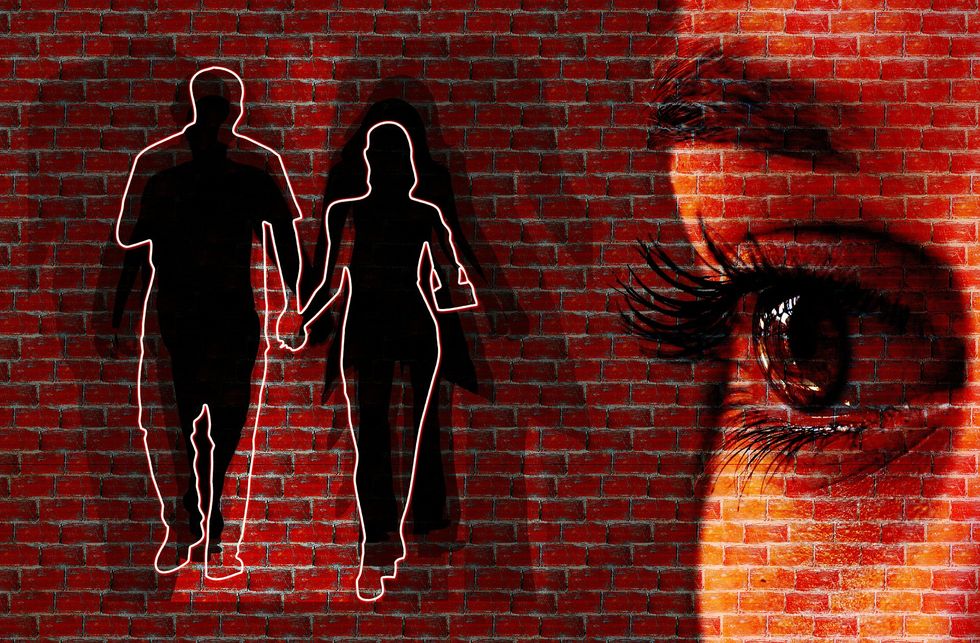When I was 13, a guy in my English class, Mikey McTinkleton, was the envy of all the boys and the dream boyfriend for all the girls.
“He’s so in touch with his feelings,” they’d swoon, gushing over his poetry.
McTinkleton was tall, brooding and mysterious. He had dark, Justin Bieber-esque hair that flared out on all sides, and beneath that hair were bright green eyes. These traits paired nicely with his oddly sonorous voice, which seemed to have skipped the pubescent voice-cracking stage—another reason to resent him.
I didn’t really mind Mikey at first; he wrote poetry, and I played video games. I spent most of my time with my girlfriend, Jess, who kept me grounded and secure. I felt most confident when I was with her. She validated my feelings, and she helped me feel attractive despite my short, stumpy stature and the pimples that sprinkled my face. Where Mikey found his confidence from reading and writing, I found mine through Jess.
At least I thought, until I saw Mikey kissing Jess against my locker after sixth period.
“He wrote me a poem,” Jess explained later. “And he smelled so good.”
Mikey McTinkleton was kissing my girlfriend. He was writing her poems. And he was objectively more attractive than me. I cried.
My hatred for Mikey started that day, and it lives on today, as man in my early twenties—and it permeates other areas of my life. I hate all English majors now. They all resemble Mikey, who has a bloated imagination, sickly judgment and disgust towards all the real businesses of life. He spends his days writing in Columbia’s MFA program, while I spend mine in construction part-time while working on my art history degree, a much more practical and interesting field. I hate his now unkempt hair, his tattered satchels filled with novels, his pretentious proclivity for mentioning his study-abroad experience in every conversation. He’s a ludicrous figure, rummaging about, snuffling around the richest parts of New York City while using his big words to steal girlfriends. And most biting part—what cuts me to the soul—is he doesn’t remember me or Jess.
Before giving up art, I used to draw my inspiration from the pain Mikey McTinkleton cause me in eighth grade. I was determined to make art that would change the world. But what, I asked myself after all my paintings were rejected, if you aren’t meant for art? What if you are a sensitive and offbeat soul, determined to be an artist, but suspect you have no talent? Mikey McTinkleton had ruined me, I realized.
I fell into a deep depression, and I resolved that there’s a certain integrity in blithely refusing to care. I lost interest in art. I began turning to television not in the hope of entertainment but in despair. And I started eating junk food. A lot.
My anger compounded as my body bloated.
“Darn you, Mikey McTinkleton!” I’d shout, pizza slice in hand. “You’ve ruined me!”
I’d shake my fist angrily at the TV, but it never responded. It continued to flash discordant colors that hurt my eyes. With a sigh, I’d click the device’s off button and shuffle to my bedroom, where I played hours of Pokemon before falling asleep. I’d always name my Pokemon enemy “McTinkleTitties” and vowed to destroy him. And I did. Without relent.
These habits, cultivated by the pain Mikey McTinkleton inflicted, affect who I am to this day. I’m pursuing a degree in art history instead of painting—my dream—because I’m unconfident to the point of fear. I don’t believe in my own ability, so I critique others’ work with cruel derision. I was blossoming into a beautiful young adult, and now I’m a hollow shell filled only with jealousy and anger. This downfall is all Mikey McTinkleton’s fault.
Darn you, Mikey McTinkleton. Darn you.















